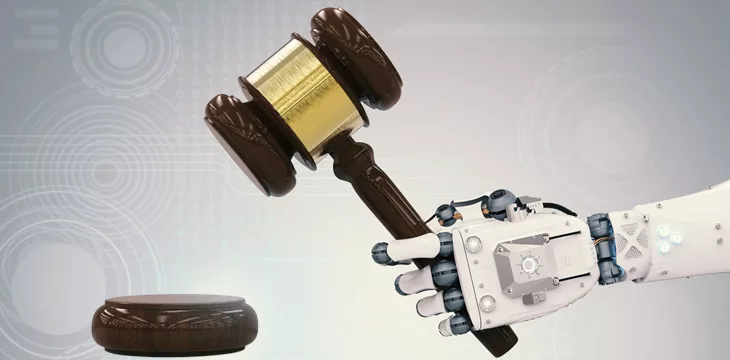|
Getting your Trinity Audio player ready...
|
Morocco has started using artificial intelligence (AI) in its courts to transcribe rulings, conduct research, retrieve archived texts, and more.
The North African country’s Justice Minister Abdellatif Ouahbi confirmed that the government had purchased an AI program and handed it to the President of the Supreme Judicial Council to distribute in the country’s courts.
Ouahbi believes that the Moroccan justice system must leverage technology to enhance efficiency and cut time and costs, and AI is the frontrunner. AI will “facilitate the work of lawyers and judges,” he told legislators in a hearing for the Justice Committee at the House of Representatives.
The minister added that AI will be implemented to enable lawyers and judges to search through millions of documents containing legal texts and judicial precedents.
While the government is pushing AI use in the country’s courts, it has not implemented formal regulations for the technology. However, Morocco was among the nations that played a big part in the U.S.-led resolution at the UN that called on safe, secure, and trustworthy AI.
The country also hosted Africa’s most prominent AI forum earlier this month, which ended in the “Rabat Consensus,” under which African nations will pursue inclusivity and safety in AI deployment.
However, like many of its peers, Morocco still relies on general tech regulations to police AI locally.
In May, Ouahbi revealed that his ministry was working on draft regulations for the sector, but not much has come of it.
A month earlier, a group of legislators in the upper chamber of the country’s national assembly—the House of Councillors—submitted a draft bill to regulate AI. The bill proposed the creation of a standalone agency to oversee AI development and push for adoption in public institutions.
African countries have been pushing for AI adoption to keep up with other regions. Recently, American tech giant Intel (NASDAQ: INTC) announced a partnership with the African Development Bank to train three million Africans and 30,000 government officials on the technology.
In order for artificial intelligence (AI) to work right within the law and thrive in the face of growing challenges, it needs to integrate an enterprise blockchain system that ensures data input quality and ownership—allowing it to keep data safe while also guaranteeing the immutability of data. Check out CoinGeek’s coverage on this emerging tech to learn more why Enterprise blockchain will be the backbone of AI.
Watch: Improving logistics, finance with AI & blockchain

 08-08-2025
08-08-2025 





